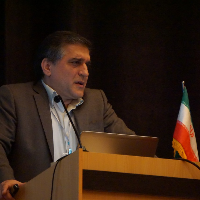Heterogeneous analysis of mode choice behavior using latent class model
To reduce traffic in the central area of Tehran and thus reduce air pollution, a toll management plan is being implemented in this area of the city. In the present study, the mode choice within the congestion pricing scheme has been investigated with respect to the base hour scenarios. The statistical population consists of 1388 respondents who were provided for the analysis of the subject in question by answering to each of the three price scenarios of 4164 observations. In addition, a latent class model is used to investigate the heterogeneity in passenger behavior and the impact of price on mode choice. Based on the results of the latent class model, the sensitivity of different groups to the price is different, so that in the class with a higher probability of being employed, the sensitivity to the price of the congestion pricing is also less. The calculation of the variable marginal effect of the traffic plan cost shows that, if the traffic cost of the project exceeds 1000 toman, the likelihood of choosing a personal car option is reduced by an average of 0.1984 percent in the three classes.
-
Covid-19 Impact on Rail and Air Modes: a SARIMA Model of Duration and Severity (Case Study: Iran)
Mohammadamin Emami, Amirreza Mamdoohi *
International Journal of Transportation Engineering, Autumn 2024 -
مطالعه تطبیقی مدلهای انتخاب وسیله سفر جهت راهکارهای مدیریتی: نمونه موردی سفرهای کاری اوج صبح در کلانشهر شیراز و مشهد
حسین عبداللهی، *، علی پایدار
نشریه مهندسی ترافیک، پاییز 1403


